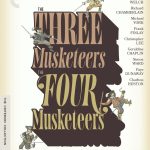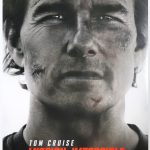To save his grandson, a retired rodeo star enters a high-stakes bull-riding competition. Along the way, he confronts his past, discovers faith, and proves that true courage lies in family.
Chuck says:
There’s nothing subtle about any of the films Angel Studios produces and their latest, “The Last Rodeo” is no exception. Specializing in faith-based entertainment, the company, via promotions through churches and fervent word-of-mouth campaigns, has a steadily growing following that enables them to turn a profit on their ham-fisted movies. As for “Rodeo,” it’s better than most of their efforts, thanks in large part to veteran director Joe Avnet’s (“Fried Green Tomatoes”) work, as well as a cast of seasoned professionals who bring a sincerity to its simplistic story.
The script by Avent, star Neal McDonough and writer Derek Presley goes out of its way to focus on modern concerns of the common man to connect with the audience. At its center is a plight far too familiar to many. Young Cody Wainwright (Graham Harvey) has a brain tumor that needs to be removed. His mother’s (Sarah Jones) insurance will only cover part of the procedure and, as a result, will saddle her with a debilitating debt of over $200,000.
Her father, Joe (McDonough) is unable to help financially but sets out to raise the money, at potentially great harm to himself. A former champion rodeo rider, he’s been invited to participate in the PBR Legends Tournament, the first prize being $750,000. Having been a three-time champion, he knows the ins-and-outs of the rodeo game. That is, he did 15 years ago, when he last competed. And of course there’s the issue of his advanced years; being in his mid-50’s, he’s twice the age of some of his competitors and simply doesn’t bounce back the way he once did.
Avent keeps this all-too-familiar story moving at a brisk pace, which prevents us from dwelling on the improbabilities playing out before us. That real-life rodeo riders populate the supporting cast lend a sense of authenticity that’s helpful as are behind-the-scenes glimpses of the sport. The filmmaker’s approach to capturing the danger of competing in this arena is to be commended as well, his camera placing us right on the back of bucking bulls throughout.
McDonough has the quiet, steely presence necessary to hold the center of the movie. While his stoic approach is in keeping with traditional cowboy heroes, he’s adept at subtly conveying Joe’s fear and doubts, going a long way towards making him sympathetic and relatable. He’s aided by the presence of Mykelti Williamson and Christopher McDonald. The former is Charlie Williams, an old buddy of Joe’s who found salvation in the teachings of the Bible, which he clung to after his friend abandoned him. Meanwhile, McDonald’s trademark shiftiness gives his role of rodeo official Jimmy Mack a sense of uncertainty that’s effective. We’re never quite sure what his true intentions are towards Joe, adding a level of genuine tension to the story.
All of this is fine, yet it’s not enough to overlook the heavy-handed approach regarding the film’s theme. Stiffly read passages from the Bible, over-earnest pronouncements of faith and overt symbolism undercut the movie’s theme rather than bolster it. A subtle approach lends itself to a more sincerely delivered message, something Avnet forgets, not only in terms of the film’s religious angle but its sense of patriotism as well.
If anything, the strength that comes from community winds up being its strongest sentiment. While solving your problems on your own may be the code of the old west, accepting help is an endorsement regarding the value of your local church and congregation. “Rodeo” reminds us that while being self-reliant is commendable, there are times when larger problems can only be solved by working together.




